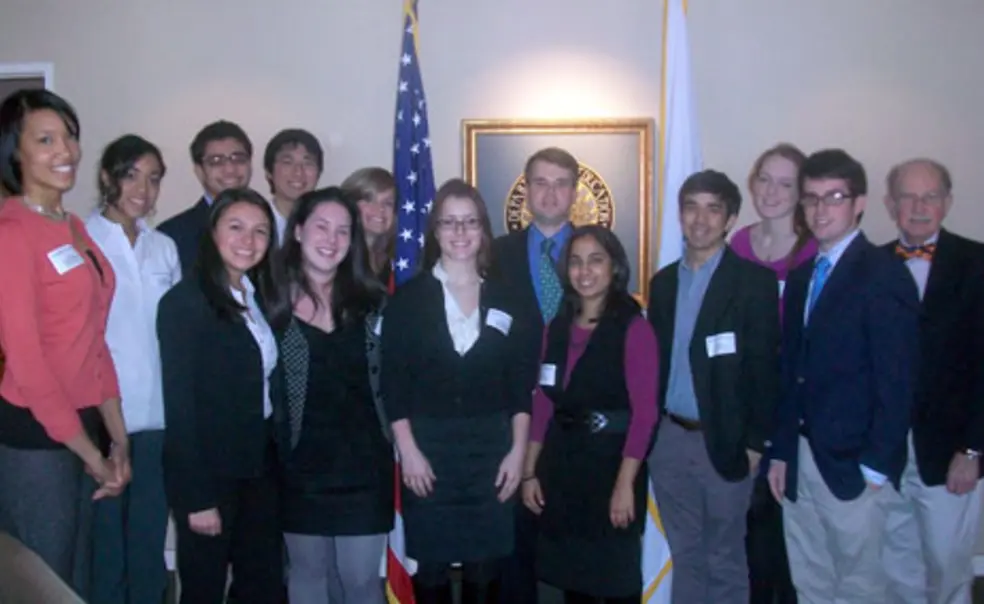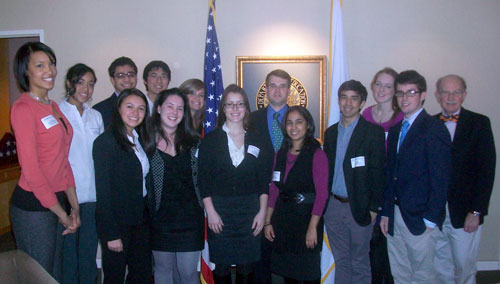Wilson School juniors pitch recommendations in D.C.
By this point in the academic year, most Princeton juniors have several things in common: They’ve stayed up late, downed too much coffee, and spent hours in the library working feverishly on their junior papers. But few can say they have discussed their junior papers with administrators like Massie Ritsch ’98, deputy assistant secretary for external and outreach services at the U.S. Department of Education, or bumped into Secretary of Education Arne Duncan on their way to a meeting.
Woodrow Wilson School students met with alumnus Massie Ritsch '98, at center in blue shirt, at the Department of Education. (Courtesy Jennifer Monson '11)
“The purpose of the trip was to assemble a panel of real politicians from the Department of Education who work on the ground on all these issues that the juniors spent a semester researching,” Miheer Matre ’11, a senior commissioner of the task force, explained. “It’s neat to share those findings.”
The staff members were very helpful, Destiny Ortega ’12 said, answering questions and helping students improve their recommendations. “It was a great opportunity for us to realize that our individual projects were really in line with what the Department is trying to do,” she said.
The policy recommendations presented at the meeting spanned a broad range of education issues. Alexis Morin ’12, for example, discussed methods for the New Jersey Department of Education to connect K-12 student data with the college performance of those same students to allow the state to better evaluate its school systems.
“One recommendation I made was that the state of New Jersey use the P-20 data collaborative – data systems that go all the way from preschool to whatever a student might do in their 20s,” she said. “This would allow them to better link their students’ college data, and most New Jersey high schools would receive some feedback about how prepared their graduates are.”
Meanwhile, Raven Keith ’12 focused on dialect differences in the classroom, specifically the impact of African-American English on minority students’ achievement. “My policy recommendation was essentially that … teachers should be provided with training on how to use African-American English as a learning tool in the classroom to improve how students learn Standard English,” she explained.
The task force, led by Wilson School professor Stanley Katz, focused on policy interventions to increase student levels of college preparation in the United States, and had students studying policy at the federal, state, and district levels.













No responses yet